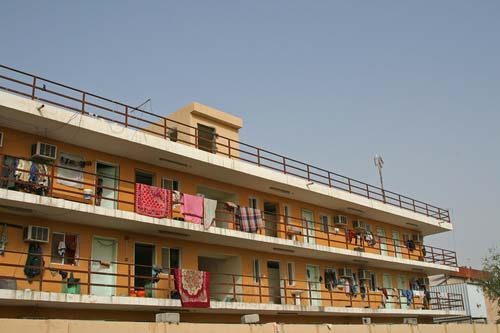
Late wages, significant debts and inconsistent access to healthcare are common problems facing Qatar residents in low-income brackets, according to a new report that delves into the daily lives of this oft-overlooked group.
“A Portrait of Low-Income Migrants in Contemporary Qatar,” which was published this summer in the Journal of Arabian Studies, is based on a survey of nearly 1,200 mostly male migrant workers who earn less than $549 (QR2,000) a month. The men work mostly as construction workers, drivers, cleaners, security guards and salesmen.
The report, which builds on previous studies by Qatar University, was led by an assistant professor from an American university in Washington, with contributions from academics at QU and Carnegie Mellon University Qatar.
In a statement, lead author Andrew Gardner, an anthropology professor at the University of Puget Sound, said that he hopes the research will spur change in Qatar and the region as a whole:
“We recognize that the experiences and challenges of these migrant workers are growing areas of concern for both Qataris and the rest of the world.
This study seeks to provide all of us—Qatari ministries, researchers, non-government organizations, and human rights activists—with better information that can help guide reform.”
Among the most interesting pieces of information in the report is the first breakdown of the ethnicity of the country’s low-income workforce.
Some 39 percent of those interviewed were from Nepal; 29 percent from India; 9 percent from Sri Lanka; 9 percent from Bangladesh; 5 percent from the Philippines; 3 percent from Pakistan; and 3 percent from Egypt. The remaining 2 percent was comprised of small groups of nationals from unspecified countries.
Despite the fact that this group of workers is often labeled as “bachelors,” 72 percent were married at the time of the survey, and supporting an average of 2.4 children in their home countries.
The study also found that, despite laws banning the practice, 90 percent of laborers reported that their employers had possession of their passports. The report does note, however, that “some migrants were content with the status quo, particularly since they felt they had no secure location at their labor camps in which to store important documents like the passport.”
Furthermore, 56 percent reported not having been issued a government-mandated Hamad health card, necessary for accessing free healthcare.
Debts and broken promises
The report also details the debts that many workers accrue when trying to secure a job in Qatar. Migrants paid an average of $1,031 for a work visa, with 56 percent finding their jobs through a labor broker in their home countries.
Only 44 percent of the workers signed a contract before emigrating, and of these, most (78 percent) were required to sign another one once they’d arrived.
The report also found that 15 percent of respondents said the job role they’d been promised had changed once they got to Qatar, and 20 percent found their promised salary had been altered.
However, the authors found that workers whose jobs had been “switched” were only marginally less satisfied with their roles than those who were unaffected, suggesting that such changes are not always regarded as a huge issue by the workers in question.
Some 21 percent also said their wages were “sometimes, rarely, or never” paid on time.
Quality of life
The report also inquired about the workers’ living arrangements. Most (40 percent) live in dormitory-style camps, while 25 percent share villas, 16 percent share apartment flats and 17 percent living in portacabins – all with an average of six people sharing a room.
A small percentage of those questioned reported serious problems with their accommodation. Five percent said they sometimes or never had sufficient water, two percent reported that they sometimes or never had a sufficient supply of electricity at their camp, and two percent said they had regular periods without air-conditioning.
Here’s the full report:
[scribd id=161314529 key=key-smaxe0q75132kbo2ral mode=scroll]Thoughts?
Credit: Photo by Richard Messenger
